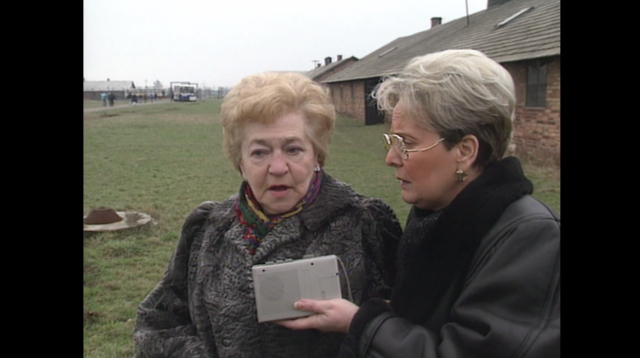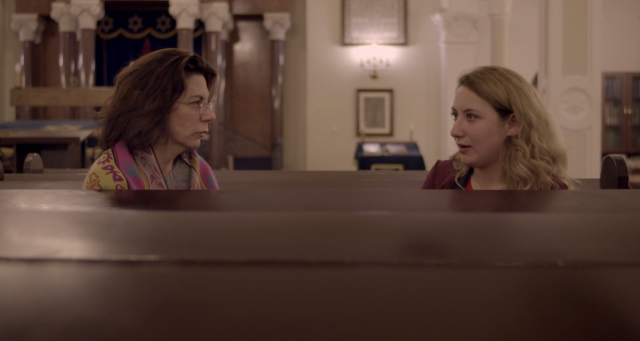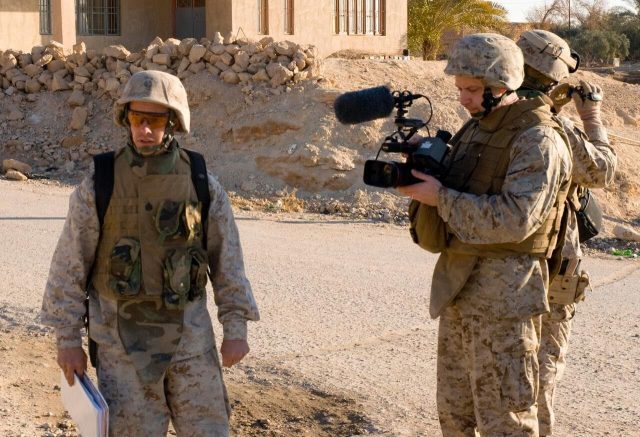
Director Michael Epstein films Staff Sergeant Frank Wuterich in Haditha, Iraq, while investigating details of 2005 massacre (photo courtesy of Viewfinder Productions)
SPOTLIGHT DOCUMENTARY: HOUSE TWO (Michael Epstein, 2018)
Thursday, April 26, Regal Cinemas Battery Park 11-3, 8:45
www.tribecafilm.com
www.netizensfilm.com
 Don’t be scared off by the title of House Two; it’s not a sequel to a horror film you didn’t see. But that doesn’t mean it isn’t downright frightening. On November 19, 2005, the Haditha Massacre took place, in which a small unit of U.S. Marines shot and killed two dozen Iraqis, including women and children, in a bedroom in a location identified as “House Two.” The Marines were searching for those responsible for setting off an IED nearby. The next year, following a Time magazine story about the incident, Oscar-nominated, Emmy-winning director Michael Epstein decided to make a film about the trial of Staff Sergeant Frank Wuterich, who was charged with eighteen counts of murder. In order to get as much behind-the-scenes information as possible without having to surrender it to the court or the military, Epstein actually became an official part of Wuterich’s defense team, gaining full access to its strategy and all those involved, beginning with Wuterich himself. In exchange, the legal team agreed that Epstein would have ownership of all footage he shot and that he could use it in any way he saw fit; thus, he had complete control over the documentary, and the legal team would even indemnify him for any resulting libel claims from them or Wuterich. What Epstein found out about the case is utterly shattering, a widespread conspiracy to cover up the incident — which recalled the 1968 My Lai Massacre in Vietnam — with a shocking revelation of who was ultimately in charge of the whitewashing.
Don’t be scared off by the title of House Two; it’s not a sequel to a horror film you didn’t see. But that doesn’t mean it isn’t downright frightening. On November 19, 2005, the Haditha Massacre took place, in which a small unit of U.S. Marines shot and killed two dozen Iraqis, including women and children, in a bedroom in a location identified as “House Two.” The Marines were searching for those responsible for setting off an IED nearby. The next year, following a Time magazine story about the incident, Oscar-nominated, Emmy-winning director Michael Epstein decided to make a film about the trial of Staff Sergeant Frank Wuterich, who was charged with eighteen counts of murder. In order to get as much behind-the-scenes information as possible without having to surrender it to the court or the military, Epstein actually became an official part of Wuterich’s defense team, gaining full access to its strategy and all those involved, beginning with Wuterich himself. In exchange, the legal team agreed that Epstein would have ownership of all footage he shot and that he could use it in any way he saw fit; thus, he had complete control over the documentary, and the legal team would even indemnify him for any resulting libel claims from them or Wuterich. What Epstein found out about the case is utterly shattering, a widespread conspiracy to cover up the incident — which recalled the 1968 My Lai Massacre in Vietnam — with a shocking revelation of who was ultimately in charge of the whitewashing.

Staff Sergeant Frank Wuterich tries to remember what really happened in Haditha while facing murder charges House Two (photo courtesy of Viewfinder Productions)
What was expected to take about eighteen months turned into a ten-year saga for Epstein, who met with Wuterich extensively as well as with his family, even returning to the scene of the crime to help Wuterich remember exactly what happened and who pulled the triggers when. Epstein speaks at length with Wuterich’s legal team, consisting of former Marine Corps Judge Advocate Neal Puckett, former Marine major Haytham Faraj, and Lt. Col. Colby Vokey, former head of the Regional Defense Council West for the Marine Corps. He also interviews NCIS special agents Michael Maloney and Thomas Brady, who discuss the forensic evidence in great detail and what likely happened at House Two, which doesn’t mesh with the prosecution’s case. But the more the agents and Wuterich’s legal team discover about four other members of the unit who were present at House Two (and House Four) — Private First Class Umberto Mendoza, Corporal Sanick DelaCruz, Lance Corporal Justin Sharratt, and Lance Corporal Stephen Tatum — the more doubt is cast on who actually was responsible for the killings, raising questions that top Marine brass seem to want to sweep under the rug as soon as possible.
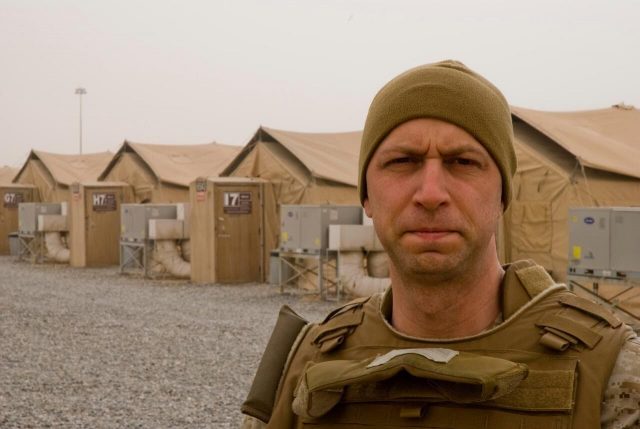
Michael Epstein spent ten years immersing himself in the case involving Staff Sergeant Frank Wuterich’s role in the Haditha Massacre (photo courtesy of Viewfinder Productions)
House Two is a tough, tense procedural that goes beyond fly-on-the-wall docs, immersing the viewer in the narrative, particularly as new facts are brought to light but not everyone is willing to accept them. Epstein’s camera reaches some remarkable places as he reveals more about the Marines who were in Haditha at the time of the massacre and exposes a series of lies that keep growing bigger and bigger. Because he was part of the legal team, Epstein (The Battle over Citizen Kane, LennoNYC) has a clear bias; at times he can be heard off camera leading his interview subject onto a certain path. But as he later shows, there appears to be no legitimate other side of the case, as the Marine prosecutors rely on a shaky, and shady, house of cards that is destined to fall. It’s fascinating listening to Maloney, an expert who was among the first to question the original story; Faraj is also a riveting figure, not afraid to get right in Wuterich’s face to find out what happened in what he calls “a very ugly chapter in Marine Corps history.” But by the end, justice and the truth don’t matter; the reputation of the U.S. military is more important than a bedroom full of innocent dead Iraqis. As Epstein notes in his director’s statement, looking at all the evidence, “a clear, unambiguous picture emerged: In Haditha the Marines under Wuterich’s command committed murder.” That doesn’t mean anyone will pay for the crime. House Two has one more world premiere screening left at the Tribeca Film Festival, on April 26 at 8:45; its previous screenings caught the attention of the Pentagon, which is reviewing the incident and deciding what, if anything, to do next.
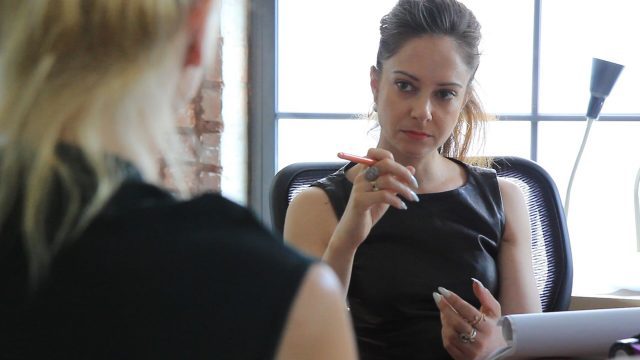
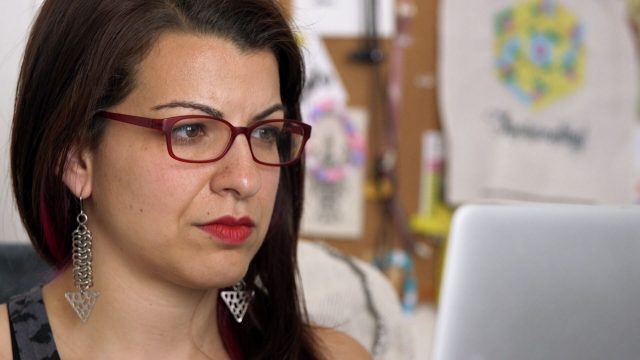
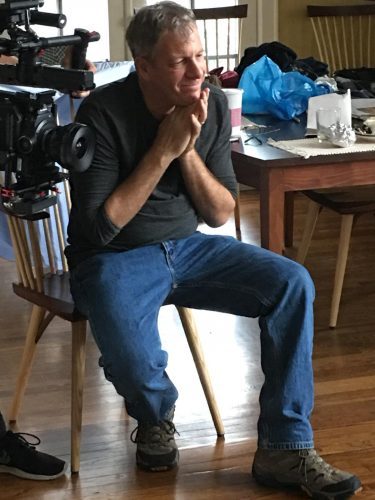
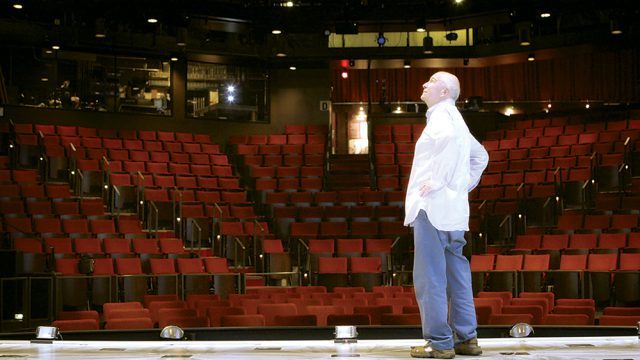
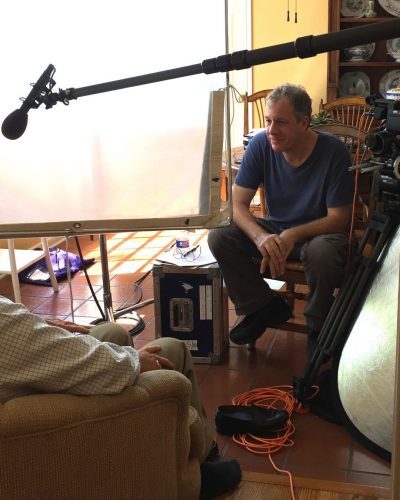
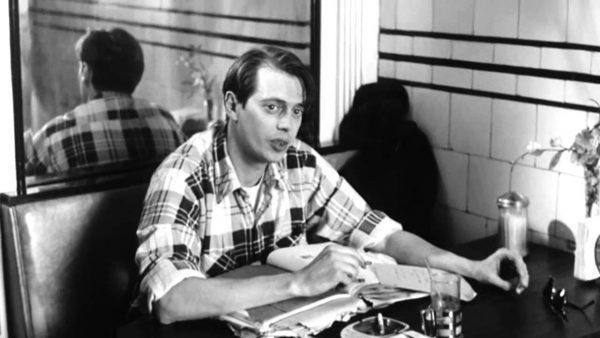
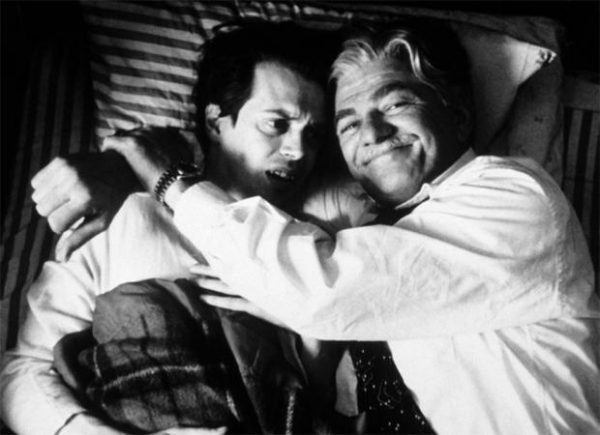

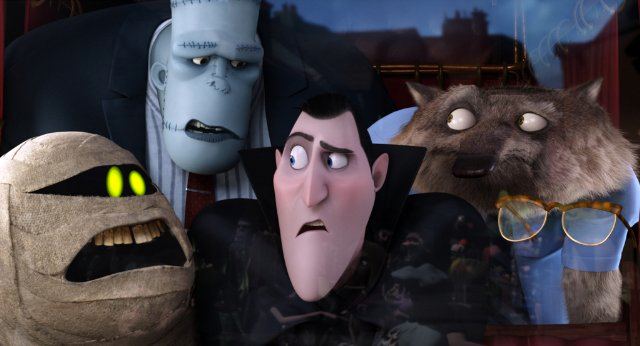
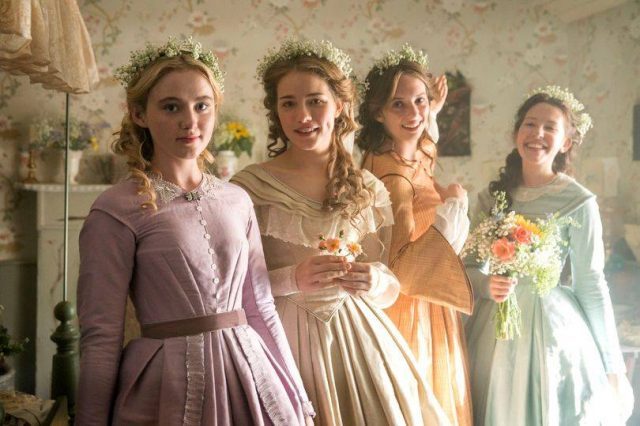
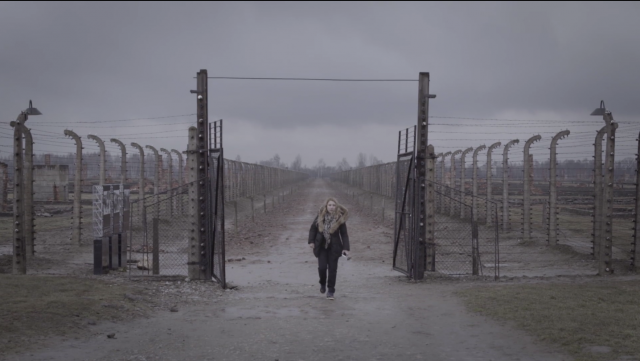
 According to a disturbing new survey published this week by the Conference on Jewish Material Claims Against Germany and conducted by Schoen Consulting, twenty-two percent of millennials have never heard of the Holocaust, while fifty-eight percent of Americans believe that “something like the Holocaust could happen again.” The report was released just in time for Yom Hashoah, Holocaust Remembrance Day. At least one millennial is doing something about that. On April 13, Serena Dykman’s extraordinary documentary, Nana, opens at Cinema Village, where the twenty-five-year-old first-time full-length feature director will participate in Q&As following the 7:00 screenings on Friday and Saturday. When she was a child, Serena had heard such words as “Holocaust,” “Auschwitz,” and “Mengele” but didn’t know exactly what they meant, though she knew they had something to do with her grandmother, Maryla Michalowski-Dyamant, whom she called Nana and who died when Serena was eleven. A decade later, after being in Brussels during the attack on the Jewish Museum and in Paris during the Charlie Hebdo massacre, Serena decided it was time to read the book she had been carrying around with her for two years but had been reluctant to open: her grandmother’s memoir. She then finally understood what all those words meant, and the impact they continue to have on her and her mother, Alice Michalowski, Maryla’s daughter.
According to a disturbing new survey published this week by the Conference on Jewish Material Claims Against Germany and conducted by Schoen Consulting, twenty-two percent of millennials have never heard of the Holocaust, while fifty-eight percent of Americans believe that “something like the Holocaust could happen again.” The report was released just in time for Yom Hashoah, Holocaust Remembrance Day. At least one millennial is doing something about that. On April 13, Serena Dykman’s extraordinary documentary, Nana, opens at Cinema Village, where the twenty-five-year-old first-time full-length feature director will participate in Q&As following the 7:00 screenings on Friday and Saturday. When she was a child, Serena had heard such words as “Holocaust,” “Auschwitz,” and “Mengele” but didn’t know exactly what they meant, though she knew they had something to do with her grandmother, Maryla Michalowski-Dyamant, whom she called Nana and who died when Serena was eleven. A decade later, after being in Brussels during the attack on the Jewish Museum and in Paris during the Charlie Hebdo massacre, Serena decided it was time to read the book she had been carrying around with her for two years but had been reluctant to open: her grandmother’s memoir. She then finally understood what all those words meant, and the impact they continue to have on her and her mother, Alice Michalowski, Maryla’s daughter.